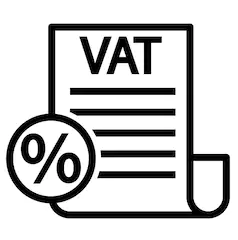Task forces work on practical policy recommendations in the form of position papers. Recommendations for an EU-EAEU dialogue are inspired by industries’ real experience and are developed jointly with the companies
themselves.
Task force I:
Visa-free Regime

Nowadays we have inconsistent visa regimes in place throughout the area from Lisbon to Vladivostok. This fact has virulent negative economic impacts for countries, businesses, and individuals in EU and EAEU alike and it calls for action.
The task force aims for three key objectives:
• Short-term: simplification of visa application procedures (using leeway of existing visa codes, e.g. by reducing costs and number of required documents, introducing online applications)
• Middle-term: abolition of visa regime for short-term business trips and tourism (Belarus model)
• Long-term: establishment of visa-free travel from Lisbon to Vladivostok
The harmonization of visa regimes is an important political signal in times of current widespread political tensions. The free movement of ideas, education and people is an invaluable social benefit of a visa-free regime.
Task force II:
Harmonize certification procedures

EAEU member states work on the enormous task of modernizing their set of technical rules, norms, and standards. EU and EAEU could take that fact as a chance to closely work together in order to harmonize technical regulation.
The task force has the following key objectives:
• Harmonization of the certification/ declaration schemes of EAEU and EU
• Involvement of industry and exporters in order to exchange experiences, addressing issues and find solutions
• Mutual acceptance of test laboratories and their test reports as basis for conformity assessment certification
Harmonized norms and standards are an elementary pre-requirement for a Common Economic Space. Already existing informal talks can be the ground for a concrete collaboration on technical standards and certification between EU and EAEU.
Task force III:
Shaping the Green Deal

The European Green Deal is the EU’s answer to tackle global climate and environmental-related challenges. A set of ambitious programs with the goal to decouple economic growth from resource use and to be climate-neutral by 2050 is being developed and executed.
The EU understands very well the importance of forging alliances with its neighboring regions. After all, ambitious EU climate targets are not enough to make the world more sustainable.
The EAEU, with its 185 million inhabitants on the border with the EU, should by all means be included in this alliance.
The task force develops concrete proposals for joint activities between the EU and EAEU in order to shape the Green Deal together.
Task force IV:
Harmonize pharma regulations

The COVID-19 pandemic illustrates the importance of effective cross-border cooperation in the health sector. The task force working on the pharmaceutical and medical device industry aims to present where joint projects between the EU and the EAEU should start. The aim must be to increase innovative strength, harmonize standards, and ensure mutual recognition of regulations.
The EAEU is in the process of developing a common pharma market by 2025. The upcoming years should be used most effectively to work on joint projects. Alignment of GMP inspections, mutual recognition of drug approvals, and harmonization of pharmacopeias are some of the areas where pharma dialogue can start.
Task force V:
Harmonize customs and logistics regulations

What is the future of the Eurasian zone in the economic interplay between Europe and China?
The logistics and customs task force sets focuses on identifying opportunities for cooperation between the EU and EAEU. The development of transport and logistics hubs along the long transport corridors has an enormous potential to strengthen the regions along the transit routes economically. There is great potential in the development of infrastructure.
The task force has the following key objectives:
• CO2 certificate for the transport industry
• Harmonization of customs documents in the framework of digitization processes
• Align trade tariff numbers
• Develop an EU / EAEU connectivity strategy
Task force VI:
Align VAT regulations

There is great potential in implementing the principle of VAT neutrality in cross-border transactions between EU and EAEU countries and within the EAEU, where the place of sale is determined by the buyer’s place of registration.
The task force is convinced that the interests of the two unions in tax issues are similar and believes that significant progress can be made in trade by implementing harmonization projects.
The task force therefore proposes putting forward a legislative initiative to the EAEU Treaty and the national legislation of the member states.
